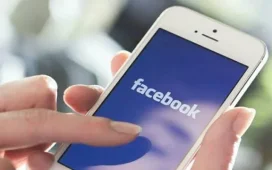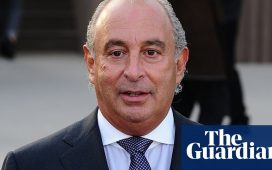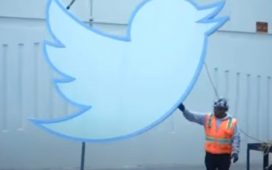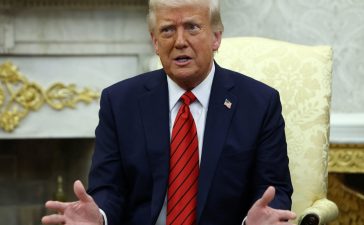We asked you how the BBC should be funded, as director general Tim Davie has come under pressure to balance the books at the corporation.
Last week, Mr Davie said he is open to a “more progressive” style of funding, revealing the “biggest-ever consultation process” on its future.
Mr Davie said he believes a licence fee should still be in place in some capacity as he feels it is important that everyone has a “stake” in it.
However, comments from Independent readers were varied. While some advocated for preserving the BBC’s ad-free, high-quality programming as a British institution, others raised concerns about the BBC’s independence and transparency.
Suggestions included adopting ad-based models like ITV or subscriptions like Netflix,
Criticisms were levelled at the TV licence fee’s fairness and the burden in places on households, especially when the cost of living has skyrocketed.
Here’s what you had to say:
‘We should be proud’
Having had to endure TV in another country for many years, l am very happy to pay the BBC licence fee, even though I have just the state pension as income. When put into a wider context, I think British people don’t realise how lucky we are to have high-quality programmes without ads as compared to American-style channels, programmes and interminable ads.
The dross that is churned out by the latter seems to be for the lowest common denominator, and to have the BBC producing films and shows for the thinking person is a breath of fresh air. I believe we British should be proud to have the BBC as a British institution that is like no other, and, indeed, I think we should treasure and protect it.
PommiePossum
‘Should be Government funded’
The BBC, as a public service broadcaster, serves an entirely different purpose to other commercial broadcasters, and should therefore be Government funded.
The BBC should receive a grant for a set period-of-time, e.g. five years, with which to operate its services and create programming. It should be set clear targets and expectations for what is to be achieved in that period, e.g. engagement, education, and also be mandated to generate income, with any ‘profits’ being paid back to the Exchequer.
The BBC is a vital national asset, creating far greater value for the country and its populace than just what’s on BBC 2 of an evening. It should be given the resources to flourish instead of being used as a punching bag for every government looking to distract from their own mismanagement of funds 10+ times greater than that of the BBC budget.
Cwatki321
‘It must keep its independence’
The most important factor in the debate about the future of the BBC is that it must keep its independence. It is our channel of news in times of conflict and emergency. This is a role that no other station fulfils and this is a cost that the government of the day should provide regardless of its perception of bias.
If this is another service where richer people feel entitled to interfere, this independence is in jeopardy.
Winnie
‘Have the ads pay for it’
It’s simple, just do what ITV do and have the ads pay for it. This whole concept of needing a licence to watch BBC… it’s bs… Other networks get by just fine without forcing people to pay.
ITV are doing quite well with this approach. Time BBC followed suit and quit threatening the public.
Dare2BFree
‘Licence fee should be scrapped’
I don’t think it’s justifiable including the TV licence fee as part of household bills. The corporation board pay, public-facing BBC personnel earning millions isn’t fair while people are struggling to pay their bills with ever-increasing utility bills/ councils tax/insurance/fuel costs. How come we ask people earning a bit more to pay more while BBC pays fat cat salaries which are outrageous.
The BBC licence fee should be scrapped and should find its own funding model with no more than 25% coming from the government for basic BBC services.
Saying it is a national service and asking the public to pay for the fat pay packets is morally wrong!!!
Puma9
‘I can’t justify the BBC in the 21st century’
I have so many good memories of the BBC that it’d be sad to see it go. But I can’t justify the BBC in the 21st century. It’s not informing and it’s not entertaining, its sense of humour is as dead as its honour culture.
To have either you need to not so much tell people what to think and what to feel, it’s an of self-confidence to allow real laughter and real opposition. The common thread is that you need a sense of fair play a sense of allowing things to land where they do.
TheRedSquirrel
‘Make it a subscription channel’
Just make it a subscription channel where you pay only for the BBC.
At the moment you have to have a licence to watch live TV on other channels even if you never watch the BBC.
BrummieGuy
‘Do we want to keep a public service broadcaster?’
Before deciding who pays what, we need to decide if we want to keep a public service broadcaster.
If so, then the question of how it is funded becomes relevant.
ColwynDay
‘Private subscription only’
The BBC should be private subscription only. We never watch their programmes so why should we have to pay for something we never watch. My guess is without forcing people to pay the BBC would be out of business pretty quick.
Bill
‘The licence fee is not a choice’
Why should people with more money have to pay extra for the same product?
The license fee is not a choice.
The BBC is funded by public subscription.
Perhaps a clearout of those earning massive salaries might be a start in balancing the books. Is Huw Edward’s £435k per year salary for reading the news in any way justifiable?
DBlenkinsop
‘Outdated and unfair levy’
Traditional TV programming is gasping its last breath, much like the sinking viewership and readership of legacy media. In this digital era, the old-guard entertainment and news outlets are becoming relics. The rise of streaming services, on-demand content, and digital platforms has left scheduled TV broadcasts and traditional print media in the dust.
Adding insult to injury, people are fed up with the legacy media’s deceitful practices. Whether it’s blatant lies or intentional omissions, these outlets are increasingly viewed as pushing biased agendas that don’t serve the public’s best interests. Trust is at an all-time low, and audiences are fleeing in search of more transparent, personalized, and honest sources of information and entertainment.
To make matters worse, the BBC licence fee is seen by many as an outdated and unfair levy. It’s high time this relic of a bygone era is scrapped. The days of traditional broadcasters and print media holding sway are numbered in an evolving media landscape that they’re failing to adapt to.
AndrewLusty
Some of the comments have been edited for this article. You can read the full discussion in the comments section of the original article.
All you have to do is sign up, submit your question and register your details – then you can then take part in the discussion. You can also sign up by clicking ‘log in’ on the top right-hand corner of the screen.
Make sure you adhere to our community guidelines, which can be found here. For a full guide on how to comment click here.












